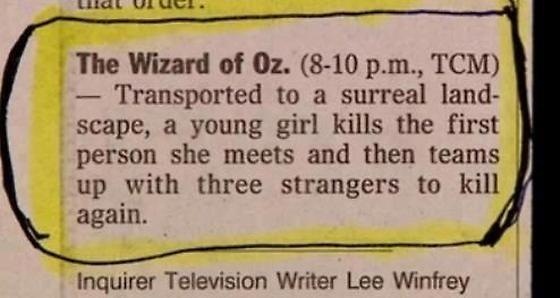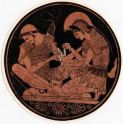By Helen and Laura
When we think about elevator pitches, we often divide them into two sections: 1) the description; and 2) the logline. In our last post we showed you how to pare down a synopsis into an effective, short description of the plot of your book.[1] In this post, we’re going to take you through how to put together a logline.
What is a Logline?
People use the term “logline” to refer to a number of different things, depending on the context. Sometimes it just means a catchy phrase; sometimes it refers to simply a short blurb or description. In this case, we’re going to do something quite specific with it. A logline should simultaneously compare your book to well-known and accessible material while also showing something intriguing and original.
Think X meets Y.
An Example: American Gods
In our last post we came up with the following
elevator pitch description for Neil Gaiman’s American Gods: “This hard-boiled urban fantasy follows ex-convict Shadow and his boss, the confidence man and possible Norse deity, Mr. Wednesday, along with a cast of burned-out mythological deities on a cross-country attempt at a comeback tour.”
So what’s our logline?
“American Gods is Stephen King rewriting The Odyssey.”
Helen’s Take
Loglines aren’t my department so much but I did spend some time thinking about them an awful lot when I was working on my collection Hair Side, Flesh Side, in part because I really didn’t have an idea how to explain what I was trying to do and what my collection was about. What I came up with was: “Hair Side, Flesh Side is English Lit 101 team-taught by Neil Gaiman and Jorge Luis Borges.” But you know what? Having it worked. When I did an interview for the Sarnia Observer about ChiZine Publications, I dropped it to the journalist and it showed up in the print article.[2] So all I can say is that a good logline works—it gives the other person something familiar to latch on to and something snappy to walk away with.[3]
Laura’s Take[4]
Loglines are my department entirely.[5] I use ‘em to pitch to distributors and to sales representatives. [6]These people go to bookstores across the country and convince staff there to push your books. But the problem is that you’re never alone. You’re competing against all the big boys, and you only have about thirty seconds to leave an impression. A logline is the thing you say to someone when they wander by the book table or when you’re trying to sell something fast. They can be one of the most effective tools in the business.
Logline Tips
1) Use well-known examples. Try to choose your comparable titles based on whatever you think the reader will know. We remember watching a book-selling moment where a potential buyer explained that she wanted to pick up one of the books, but didn’t read much. The seller proceeded to explain seven or eight books using only loglines—it failed entirely. The buyer had no idea how to parse them because she hadn’t read the books they were compared to.
2) Come up with several versions and use the most appropriate. Loglines can say all sorts of things—genre, character, plot—and they can reference all sorts of different media. Once again, look at your audience and choose accordingly.
3) Make your comparisons suitable different. Don’t say your writing is like It meets Carrie. If you want to spark interest then you need to come up with things that aren’t automatically like one another. So one of our latest books, Ninja Versus Pirates: Featuring Zombies has the logline, “Part Napoleon Dynamite, Part The Matrix—and All Awesome!” It’s not terribly clear how that mash-up makes any sort of sense, but I bet people are willing to try it to find out!
Tune in next week for…whatever takes our fancy. That’s right, you heard us, we’re going off book! Who knows what the future will bring?
[1] We didn’t actually. This is a lie. In our last post, we complained bitterly about the fact that we hadn’t posted in months. But just bypass that for the moment, gentle reader, and follow us on a trip back through time and space to May 15, 2012 for which this draft was postmarked. Pretend we posted it then.
[2] Please do not think that securing the attention of the Sarnia Observer is a big deal.
[3] It is too! I mean, like when Mom gave me that pin-up certificate saying “Best Author Ever!” That was, like, legitimate!
[4] Maybe one day Mom will give me a “Best Marketer Ever!” pin-up certificate.
[5] You get a paycheck.
[6] I still need love.










How to Write an Elevator Pitch, Part 2